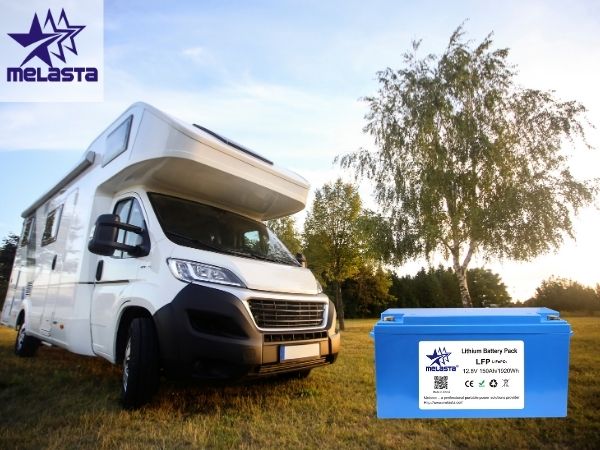
You‘re questioning which type of Melasta lithium battery will work best in your RV? Perhaps you‘re looking for a recreational vehicle and wonder about which type and capacity of batteries will work best in your brand-new trailer. In this blog site, we cover a few of the advantages of lithium batteries for your recreational vehicle and most likely battery options depending upon the power and size requirements of your recreational vehicle.
Weight is the main thing to consider, whether you are driving your RV or towing some vehicle. All trailers and vehicles have a maximum capacity or weight rating which should not be surpassed. Standard lead-acid Group 24 through 31 batteries weigh in between 60 and 70 pounds each. Alternatively, lithium batteries are typically less than half the weight of their lead-acid equivalents. If you have a bank of 8 batteries that is 280 pounds you can utilize someplace else.
Lithium batteries provide a much greater functional capacity at the very same amp-hour rating when compared to lead-acid batteries. In numerous applications, lead-acid batteries are sized at 50% depth of discharge to prolong battery life.
Lithium batteries can be charged at a much greater rate due to the fact that they have lower internal resistance. In contrast, group 24 through 31 lead-acid batteries might take 6 to 12 hours to charge whereas lithium is 4 to 6 times quicker in charging (in 1 to 3 hours).
Partial state of charge or PSOC is a typical killer of lead-acid batteries utilized in recreational vehicles. Lithium batteries are not affected by not completely charging or routinely running in a partial charge state. In addition, lithium batteries can be put in a storage state (50 percent charge) for the winter season or extended durations if you know that you will not utilize your recreational vehicle for many months.
The upfront expenses of lithium batteries appear greater, but the real expense of ownership is at least less than half of the lead-acid batteries. Even the finest AGM batteries installed in a lot of recreational vehicles have an efficient life in between 400 cycles at 80 percent depth of discharge and 800 cycles at 50 percent depth of discharge. In contrast, a lithium battery‘s life is 6 to 10 times longer than a similar lead-acid battery. Just imagine that you won‘t need to change your batteries after every 2 to 3 years!
You can get in touch with us at [email protected] if you have any further queries or need any help in choosing the appropriate batteries for your recreational vehicle.